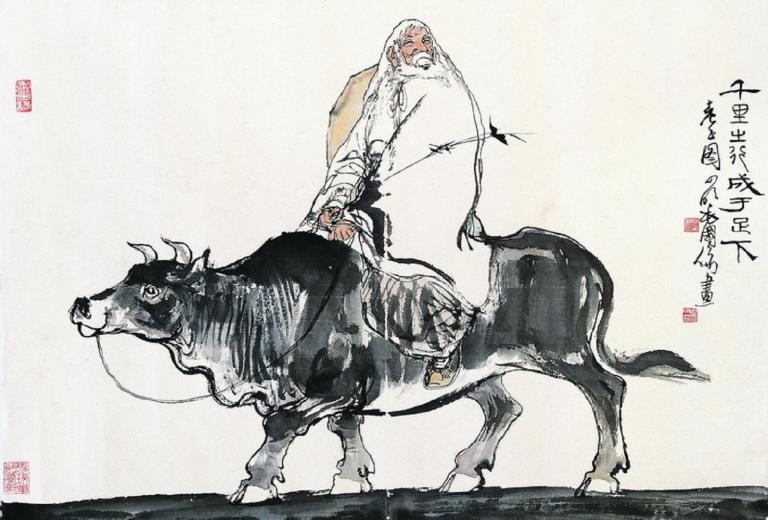Naturalness and Non-action
2 min read“Naturalness”is an important concept of Laozi’s philosophy. It refers to a natural state of being, an attitude of following the way of nature. Laozi emphasized that everything in the world has its own way of being and development: birds fly in the sky, fish swim in the water, clouds float in the sky, flowers bloom and flowers fall. All these phenomena occur independently and naturally without following any human will, and humans should not try tochange anything natural. Laozi admonished people to give up on any desire to control the world. Following the way of nature is the way to resolving conflicts between humans and the world.

“Non-action”is another important concept of Laozi’s philosophy. It is the guarantee of”naturalness.”Laozi said,”(Dao or the Way) acts through non-action,”by which he did not mean that one should do nothing and passively wait for something to be achieved. Neither did he deny human creativity. What he meant is that human enterprises should be built on the basis of naturalness, not on any attempts to interrupt the rhythm of nature. Human creativity should be in compliance with the ways of nature.
Laozi said,”Great ingenuity appears to be stupidity.”This is the essence of “naturalness”and”non-action.””Great ingenuity”refers to the highest level of ingenuity, arising so naturally that it does not resemble ingenuity at all.
Ingenuity can be achieved through human effort, but “great ingenuity”is superior to ordinary ingenuity. To Laozi, resorting to deceit is true futility and would accomplish just the opposite result. Those who intend to play tricks are not genuine and therefore are not natural. Deceit is detrimental to naturalness and to the harmony of life.

Zhuangzi(369-286 BC), the philosopher who carried on Laozi’s philosophy, had the following story to tell about a “useless tree”: A carpenter went with his apprentice to the State of Qi. On the way they came across a giant tree by the local temple for the deity of the earth. Its trunk was several dozen metersthick and as tall as a mountain. Its branches could provide shade to several thousand cattle. While people thronged to worship the super tree, the carpenter passed it without taking a look. The apprentice, however, was fascinated. After carefully studying the tree,he ran to catch up with his master and asked,”Ever since I became your apprentice,Ihave never seen such fine wood. But you just kept walking without even looking at it. Why?”The master replied,”That tree produces useless wood. If you made a boat out of it, the boat would sink. If you made a coffin out of it, the coffin would soon rot.If you made utensils out of it, they would wear out quickly. Its wood is of no use at all.That is why this tree has been able to live so long.”The wisdom of the”useless tree”lies exactly in its uselessness, or its naturalness.









